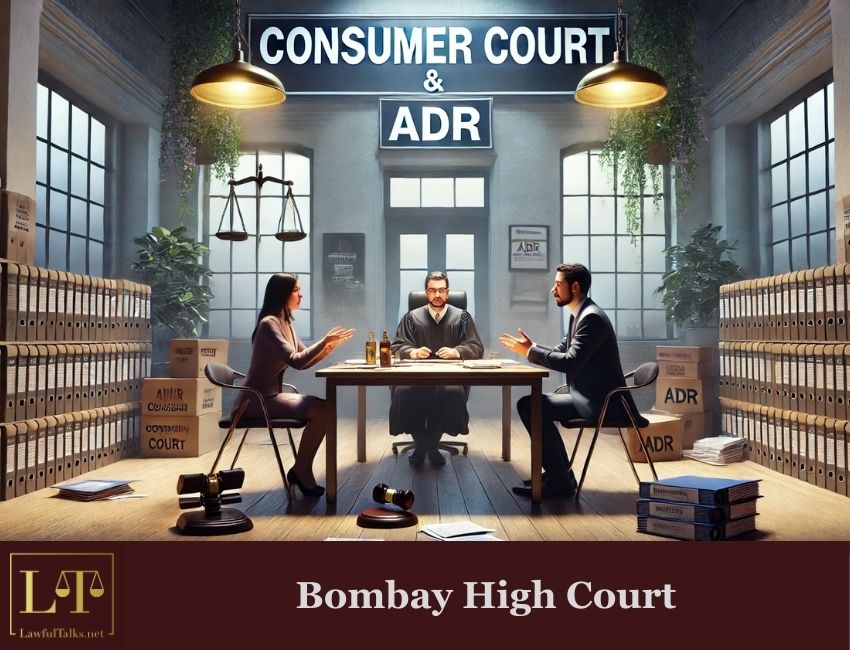Allahabad HC Sets Aside Afzal Ansari's Conviction, Allows Him to Continue as MP

The Bombay High Court bench of Justice G.S. Kulkarni and Justice Advait M. Sethna, has ruled that the benefit of section 14 of the Limitations Act, 1963, can be extended to a petitioner who delayed filing an application under section 34 of the Arbitration and Conciliation Act, 1996. The application was filed to seek setting aside of an arbitral award. The court acknowledged that the delay occurred due to the prevailing legal position at the time of filing, which was subsequently altered.

The dispute between the parties arose from a purchase order dated March 9, 2013, prompting the respondent to approach the Facilitation Council with a claim of ₹4,50,92,587/-. Efforts were made to settle the matter, resulting in a Settlement Agreement on May 16, 2016. However, the respondent later raised claims for outstanding dues, leading to arbitration.
The Facilitation Council adjudicated the dispute and issued an arbitral award on February 5, 2020. The appellant initially challenged the award by filing a Writ Petition, arguing that the Facilitation Council lacked jurisdiction to arbitrate after conciliation. Additionally, the appellant contended that the award was received on August 21, 2020, during the COVID-19 lockdown, and sought relief under the Supreme Court’s order extending limitation periods. Although an interim stay was granted, the appellant later withdrew the Writ Petition on January 11, 2023, to seek an alternative remedy.
Subsequently, on March 17, 2023, the appellant filed an application under Section 34 of the Arbitration and Conciliation Act before the District Judge, Pune, along with a request for condonation of a 66-day delay. The respondent opposed the delay condonation application, asserting that the arbitral award was dated February 5, 2020, and the mere filing and withdrawal of the Writ Petition did not justify the delay. The District Judge rejected the application, holding that it exceeded the limitation prescribed under Section 34(3). As a result, the parties approached the High Court for further adjudication.
The appellant's counsel argued that the arbitral award, received on August 21, 2020, fell within the COVID-19 period, during which limitation was suspended by the Supreme Court. From December 24, 2020, to January 11, 2023, the appellant pursued Writ Petition, relying on Gujarat High Court ruling that the Facilitation Council could not arbitrate after conciliation. However, after the Supreme Court overruled that decision, the appellant withdrew the writ petition and filed a Section 34 application on March 17, 2023.
The appellant contended that the Section 34 petition was filed within the prescribed limitation, and any delay should be condoned under Section 14 of the Limitation Act, as they had bona fide pursued the writ petition. The appellant requested that the impugned order be set aside so the District Court could adjudicate the matter.
On the other hand, the respondent opposed this argument, arguing that the appellant’s delay condonation request was unjustified, as the actual delay exceeded 66 days. Even with the Supreme Court’s COVID-19 extension, the Section 34 application should have been filed by September 30, 2022, but the appellant delayed until March 17, 2023, over five months late.
He further contended that Section 14 of the Limitation Act did not apply, as the appellant did not pursue the writ petition in good faith. The Supreme Court had already affirmed the Facilitation Council’s arbitration authority in Jharkhand Urja Vikas Nigam Ltd., yet the appellant withdrew the writ petition only on January 11, 2023. Additionally, after the Supreme Court’s ruling in Gujarat State Civil Supplies Corporation Ltd. on October 31, 2022, the appellant should have filed by February 28, 2023, but failed to do so. Citing Deena vs. Bharat Singh, he maintained that the petition was time-barred.
The Bombay High Court after examining the facts and submissions made by the parties ruled that the appellant’s writ petition was justified based on the then-prevailing legal position in Gujarat State Petronet Ltd. vs. Micro and Mine Enterprises Facilitation Council (2018), which held that the Facilitation Council lacked arbitral jurisdiction. This position was later overturned by the Supreme Court in Gujarat State Civil Supplies Corporation Ltd. vs. Mahakali Foods Pvt. Ltd. (2023). Following this, the appellant withdrew the writ petition on 11th January, 2023, and filed a Section 34 application on 17th March, 2023.
The court held that even if there was a delay, it should be condoned under Section 14 of the Limitation Act. It also noted that calculating limitation from the writ petition’s withdrawal date placed the Section 34 application within the prescribed timeframe, a key aspect overlooked by the District Judge. Citing Consolidated Engineering Enterprises vs. Principal Secretary, Irrigation Department (2008), the court reaffirmed that Section 14 of the Limitation Act applies to Section 34 proceedings under the Arbitration Act.
The Bombay High Court, relying on Deena (Dead) through LRs. vs. Bharat Singh (Dead) through LRs. (2002), held that Section 14 of the Limitation Act was applicable as the prior proceedings were pursued in good faith with due care. Given the Supreme Court’s Covid-related limitation extensions and the Bombay High Court’s ruling in Gujarat State Petronet Ltd., the appellant’s writ petition was filed in good faith.
The court concluded that under Section 34(3) of the Arbitration Act, which allows a three-month period plus a 30-day extension to challenge an award, the delay condonation application should not have been rejected.
Consequently, the appeal was allowed, the District Judge’s impugned order was set aside, and the District Judge was directed to decide the Section 34 proceedings on merits, with all contentions remaining open.
Case Title: NTPC BHEL Power Projects Pvt. Ltd. v Shree Electricals & Engineers (India) Pvt. Ltd.
Advocate for the Petitioner: Mr. Akash Menon a/w. Mr. Kalash Bakliwal.
Advocate for the Respondent: Mr. Mandar Limaye a/w. Mr. S.C. Wakankar, Mr. Vedant Bende

Pallavi Zende
Law Student
Latest Posts
Categories
- International News 19 Posts
- Supreme Court 352 Posts
- High Courts 366 Posts




























































































































































































































































































































































































































































































































































































































































































































































